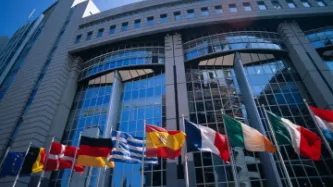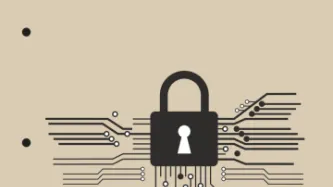Advanced Search
Content Type: Press release
A new report released today by the Royal United Services Institute (RUSI) highlights key technical blind spots in current GCHQ oversight and calls for a new, comprehensive and clear legal framework governing British intelligence agencies' surveillance capability.
The report panel, which included three former British intelligence chiefs, sets out clear deficiencies in the existing technical oversight regime, explaining current oversight "does not check the code [that underlies GCHQ’s…
Content Type: News & Analysis
On July 6th, the company Hacking Team was hacked: over 400GB of administrative documents, source code and emails are now available for download.
Documents from the hack confirm once again the claims made in our report Their Eyes on Me, the Moroccan intelligence services made use of Hacking Team's spyware 'Remote Control System' to target those whom they perceive as their opponents. The documents show the two intelligence agencies in the country have been renewing their contracts and…
Content Type: News & Analysis
Here are eight things we have learned from this week's hack of some 400GB of internal company material and correspondence from Italian surveillance company Hacking Team.
The Citizen Lab was right
The Citizen Lab, who in 2014 identified some 21 countries that are potential customers of Hacking Team, were right about all of them. A 2015 report stated that there was likely to be more. In fact, at least 45 countries are purchasers of Hacking Team's…
Content Type: Press release
A 400 gigabyte trove of internal documents belonging to surveillance company Hacking Team has been released online. Hacking team sells intrusive hacking tools that have allegedly been used by some of the most repressive regimes in the world.
The documents reportedly confirm Hacking Team has customers in 35 countries, including some that routinely abuse human rights. These documents seemingly validate research conducted by Citizen Lab…
Content Type: News & Analysis
Privacy International and twenty-two other organisations from around the world welcome the appointment of Mr Joseph Cannataci as the UN Special Rapporteur on the Right to Privacy.
Today, the President of the UN Human Rights Council (UNHRC) appointed Mr Cannataci to fill the post that was created by the Council in March 2015 to address the rising concerns about the enjoyment of right to privacy, particularly in the context of new communications technologies.
Mr Cannataci's…
Content Type: Press release
The UK’s Investigatory Powers Tribunal (IPT) today notified the ten NGO claimants in a legal challenge against GCHQ mass surveillance practices that the Tribunal had mistakenly omitted information about unlawful GCHQ actives in their judgment from ten days ago . In an email to the claimants, including Privacy International, the Court admitted that in its 22nd June 2015 judgment it wrongly failed to declare that Amnesty International had been subject to unlawful surveillance…
Content Type: Advocacy
This stakeholder report is a submission by Privacy International (PI). PI is a human rights organisation that works to advance and promote the right to privacy and fight surveillance around the world. PI wishes to bring concerns about the protection and promotion of the right to privacy in Rwanda before the Human Rights Committee for consideration in Rwanda's upcoming review.
Content Type: Advocacy
This stakeholder report is a submission by Privacy International (PI). PI is a human rights organisation that works to advance and promote the right to privacy and fight surveillance around the world. PI wishes to bring concerns about the protection and promotion of the right to privacy in France before the Human Rights Committee for consideration in France’s upcoming review.
Content Type: Advocacy
This stakeholder report is a submission by Privacy International (PI) and the Right2Know Campaing. PI is a human rights organisation that works to advance and promote the right to privacy and fight surveillance around the world. PI wishes to bring concerns about the protection and promotion of the right to privacy in South Africa before the Human Rights Committee for consideration in South Africa's upcoming review.
Content Type: Advocacy
This stakeholder report is a submission by Privacy International (PI). PI is a human rights organisation that works to advance and promote the right to privacy and fight surveillance around the world. PI wishes to bring concerns about the protection and promotion of the right to privacy in Estonia before the Human Rights Council for consideration in Estonia's upcoming Universal Periodic Review.
Content Type: Advocacy
This stakeholder report is a submission by Privacy International (PI) and TEDIC. PI is a human rights organisation that works to advance and promote the right to privacy and fight surveillance around the world. PI wishes to bring concerns about the protection and promotion of the right to privacy in Paraguay before the Human Rights Council for consideration in Paraguay's upcoming Universal Periodic Review.
Content Type: Advocacy
This stakeholder report is a submission by Privacy International (PI). PI is a human rights organisation that works to advance and promote the right to privacy and fight surveillance around the world. PI wishes to bring concerns about the protection and promotion of the right to privacy in Singapore before the Human Rights Council for consideration in Singapore's upcoming Universal Periodic Review.
Content Type: News & Analysis
The Coalition Against Unlawful Surveillance Exports (CAUSE) has today released a new policy paper calling on the EU to take the opportunity to update its Dual Use Regulation to ensure that surveillance technologies are not exported from Europe and used for human rights violations.
The proposals have been developed by the international secretariat of CAUSE, a coalition of NGOs consisting of Access, Amnesty International, Digitale Gesellschaft, Human Rights Watch, the…
Content Type: Press release
The Investigatory Powers Tribunal (IPT) today revealed that the UK Government Communications Headquarters (GCHQ) spied on two international human rights organisations, failed to follow ITS own secret procedures and acted unlawfully.
The targeted NGOs are the South African Legal Resources Centre (LRC) and the Egyptian Initiative for Personal Rights (EIPR). Both are leading civil liberties organisations and co-claimants alongside Privacy International, Liberty,…
Content Type: News & Analysis
A groundbreaking report released today by the UN Special Rapporteur on freedom of expression, David Kaye, calls on states to ensure security and privacy online by providing “comprehensive protection” through encryption and anonymity tools, warning that blanket measures to restrict online privacy fail to comply with human rights norms.
To support the findings contained in the Special Rapporteur's report, Privacy International, the Harvard Law School's International Human Rights Law…
Content Type: Report
This report is the result of a collaboration between Privacy International, ARTICLE 19, and the International Human Rights Clinic (IHRC) at Harvard Law School. IHRC conducted desk research as well as interviews with individuals working in civil society organisations in the countries examined. It explores the impact of measures to restrict online encryption and anonymity in four particular countries – the United Kingdom, Morocco, Pakistan and South Korea.
Content Type: Advocacy
Following today's Justice Ministers Council meeting in Luxembourg where an agreement was reached on the proposal for a General Data Protection Regulation (GDPR), Privacy International and European Digital Rights (EDRi) issued the following statement:
In January 2012, the European Commission, following extensive consultations, published a draft Regulation. The initiative had three priorities - modernisation of the legal framework for the protection of personal data,…
Content Type: Press release
Privacy International today filed a legal complaint demanding an end to the bulk collection of phone records and harvesting of other databases, from millions of people who have no ties to terrorism, nor are suspected of any crime.
The complaint, filed in the UK’s Investigatory Powers Tribunal, is the first UK legal challenge to attack the UK Government Communications Headquarters' (GCHQ) use of “bulk personal datasets” equivalent of the US s.215 bulk phone records metadata program. The s.215…
Content Type: Press release
Governments must accept they have lost the debate over the legitimacy of mass surveillance and reform their oversight of intelligence gathering, Privacy International and Amnesty International said today in a briefing published two years after Edward Snowden blew the lid on US and UK intelligence agencies’ international spying network.
“The balance of power is beginning to shift,” said Edward Snowden in an article published today in newspapers around the world. “With each court victory,…
Content Type: Report
This briefing, published on the two-year anniversary of the publication of the first Snowden revelations, warns that governments are looking to maintain and expand mass surveillance, despite the practice being condemned as a human rights violation by courts, parliaments and human rights bodies. It comes on the heels of the adoption of the USA Freedom Act by the US Congress, a solitary and limited example of legislative rollback of surveillance powers since Edward Snowden's revelations began. In…
Content Type: News & Analysis
The Swiss Federal Council has introduced a major amendment to its export licensing legislation in order to ensure surveillance technologies that might be used for human rights abuses are not exported from Switzerland.
What this means is that Swiss authorities must reject companies’ requests to export internet and mobile surveillance technologies if there “are reasonable grounds to believe” that the items could be used for repression in the country of destination.
The amendment…
Content Type: News & Analysis
UPDATE (21st July 2015): The deadline for submissions was Monday 20 July, 2015. Privacy International has been working hard since the proposed rule was announced to analyse its potential effectiveness and any potential effects the proposed rule could have for security research.
UPDATE (12th June): The US Bureau of Industry and Security has published (http://www.bis.doc.gov/index.php/policy-guidance/faqs#subcat200) a clarification of the scope of the proposed rule implementing…
Content Type: News & Analysis
There is a common practice within the surveillance industry that makes the already murky market even harder to track: collaborating companies.
Within Privacy International's Surveillance Industry Index there are 83 documents detailing collaborations between companies involved in developing and selling surveillance technologies. These documents represent a variety of relationships – some are friendly companies, others advertise corporate partners, and some present themselves as a distributor of…
Content Type: News & Analysis
Lebanon was part of the drafting committee for the Universal Declaration of Human Rights, and by co-sponsoring both UN General Assembly resolutions on the right to privacy in the digital age (December 2013 and December 2014), Lebanon has recently reaffirmed its commitment to its obligations to uphold the right to privacy.
And yet, Lebanon's progressive positions on the right to privacy at the UN could not be further away from the situation in the country itself.
Once seen as…
Content Type: Press release
The Government has quietly ushered through legislation amending the anti-hacking laws to exempt GCHQ from prosecution. Privacy International and other parties were notified of this just hours prior to a hearing of their claim against GCHQ's illegal hacking operations in the Investigatory Powers Tribunal.
In its legal filings, sent to Privacy International only the day before the hearing began, the Government notified claimants that the Computer Misuse Act was rewritten on 3 March 2015 to…
Content Type: Advocacy
This stakeholder report is a submission by Privacy International (PI). PI is a human rights organisation that works to advance and promote the right to privacy and fight surveillance around the world. PI wishes to bring concerns about the protection and promotion of the right to privacy in Austria before the Human Rights Council for consideration in Austria’s upcoming Universal Periodic Review.
Content Type: Advocacy
This stakeholder report is a submission by Privacy International (PI). PI is a human rights organisation that works to advance and promote the right to privacy and fight surveillance around the world. PI wishes to bring concerns about the protection and promotion of the right to privacy in Lebanon before the Human Rights Council for consideration in Lebanon’s upcoming Universal Periodic Review.
Content Type: Advocacy
This stakeholder report is a submission by Privacy International (PI). PI is a human rights organisation that works to advance and promote the right to privacy and fight surveillance around the world. PI wishes to bring concerns about the protection and promotion of the right to privacy in Rwanda before the Human Rights Council for consideration in Rwanda’s upcoming Universal Periodic Review.
Content Type: Advocacy
This stakeholder report is a submission by Privacy International (PI). PI is a human rights organisation that works to advance and promote the right to privacy and fight surveillance around the world. PI wishes to bring concerns about the protection and promotion of the right to privacy in Myanmar before the Human Rights Council for consideration in Myanmar’s upcoming Universal Periodic Review.
Content Type: News & Analysis
This guest blog is written by Hisham Almiraat, co-founder of Mamfakinch.com and Director of the 'Association des droits numériques' (ADN), an organisation working on human rights and technology in Morocco.
Mamfakinch was launched in February 2011, in the wake of the Tunisian and Egyptian revolutions. Its goal was to offer an open forum for all dissenting voices. The website received over a million unique visitors in the first few weeks after it was launched. It quickly…






















